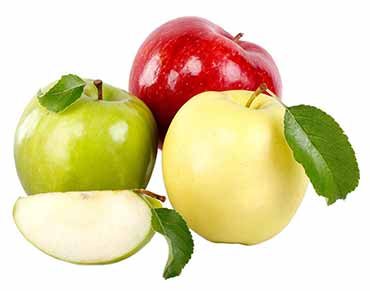Synopsis
High blood
cholesterol levels can be very dangerous to
our health as they are associated with a higher risk of cardiovascular
diseases such as atherosclerosis and coronary heart disease1.
A proper dietary plan and lifestyle changes are required to reduce blood
cholesterol levels, and it is a known fact that some particular food types may help in this regard.
See: A Naturopath view on Heart Disease Treatments
Therapies
High
cholesterol levels could be actually reduced
with specific dietary restrictions. However, modern nutritional approaches
favor a modification of dietary habits, rather than just restricting the
overall amount of daily food intake. Oil-rich foods that contain high levels of
saturated fats are often substituted with fruit and vegetables because of their high
content of soluble fibers such as pectin. Pectin is a fiber found in grapefruit,
lemon and apples as well as in other fruits and vegetables and it is known to
reduce cholesterol levels2.
See: A Homoeopathic Cardiotonic Digitalis Purpurea For Heart Disease
Science
The exact mechanism through which pectin may reduce plasma cholesterol levels is still unclear. However, several mechanisms have been proposed, including a decreased cholesterol absorption and modifications of the intestinal microflora environment. An inhibition of bile acids re-absorption has also been suggested, as pectin can partially interrupt their enterohepatic circulation3. Pectin gelification into an extremely viscous fluid within the gut could also help by sequestering micelles that contain cholesterol, which are then eliminated with the feces.
REFERENCE LINKS:
1. Information, National Center for
Biotechnology; Pike, U. S. National Library of Medicine 8600 Rockville; MD,
Bethesda; USA, 20894 (2014-06-11).
“High Blood Cholesterol.”
PubMed Health.
2. Knopp, R. H.;
Superko, H. R.; Davidson, M.; Insull, W.; Dujovne, C. A.; Kwiterovich, P. O.;
Zavoral, J. H.; Graham, K.; O’Connor, R. R. (1999-07-01). “Long-term blood
cholesterol-lowering effects of a dietary fiber supplement.”
American Journal of Preventive Medicine 17 (1):
18–23. ISSN 0749-3797. PMID 10429748.
3. Leveille GA, Sauberlich HE. “Mechanism of the cholesterol-depressing effect of
pectin in the cholesterol-fed rat.” The Journal of Nutrition 88:2 1966 Feb pg 209-14
Authors:
Dr.
Claudio Butticè, PharmD.







